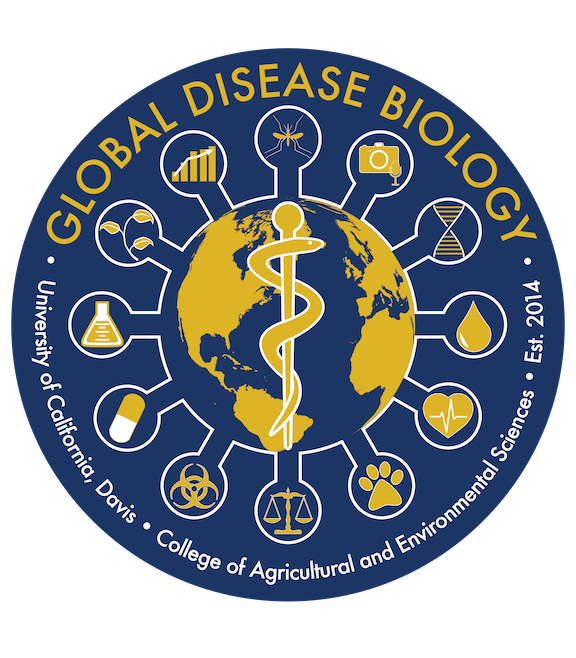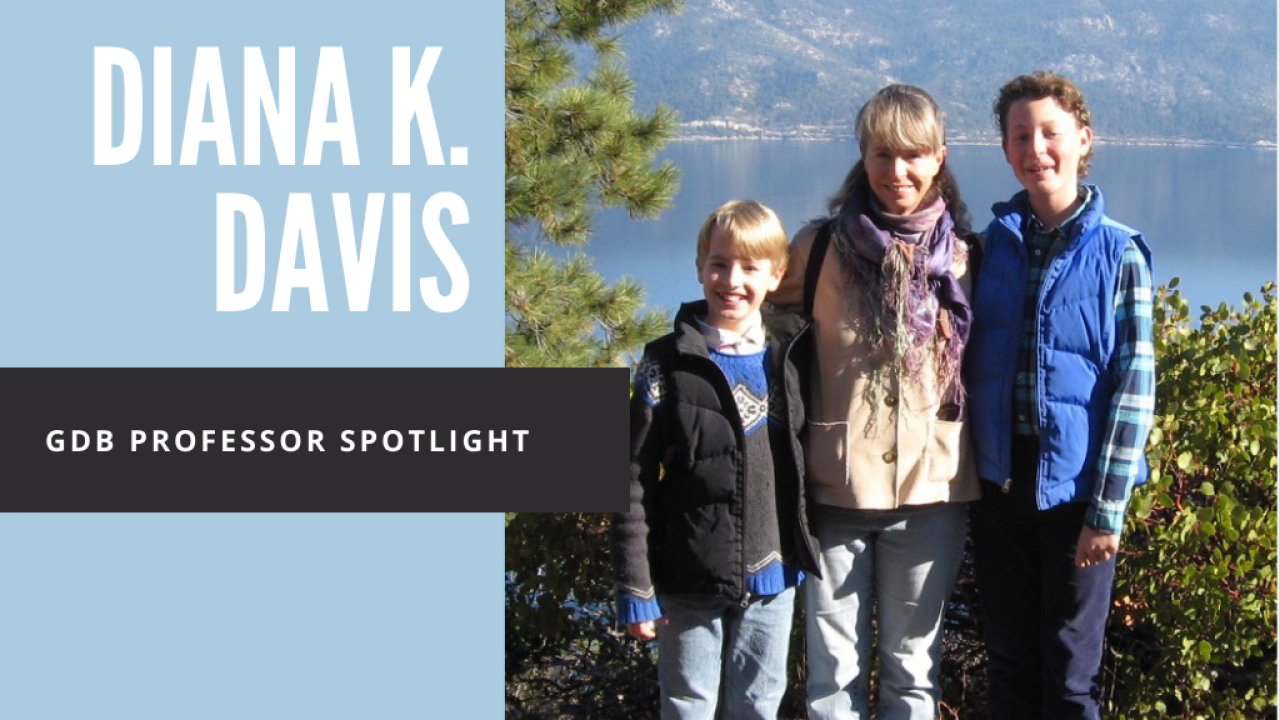
Professor Spotlight, Winter 2022: Diana K. Davis
Dr. Diana K. Davis is a geographer and veterinarian who specializes in geography, environmental history and political ecology with a special emphasis on the arid lands of the globe. She is a professor in the History Department and in the Geography Graduate Group and will be teaching a new course, GDB 106: Geographies of (One) Health, in Spring 2022.
How did you decide to study History and Geography?
I have loved Geography for a long time and my PhD is in Geography. As an undergrad, I changed my major from Math/Pre-Med to Geography after traveling for a summer in Europe with a good friend. Then I completed an MA in Geography during which I worked with nomads in Morocco for my thesis research. The nomads were suffering from a terrible drought that killed a lot of their livestock. I decided I had to do something to help.
As a result, I went to Vet School so that I could help nomads with their livestock during my future doctoral field work. I went to Tufts Veterinary School and worked with Afghan nomads for a summer externship; it was a life changing experience. After graduation, I went to UC Berkeley for the PhD in Geography and went back to Morocco once again to work with nomads there for my field research. I am grateful to have had so many great professors along the way who provided knowledge, experience and passion for geographical and veterinary research.
How have your past experiences prepared you for working at UC Davis? Did you have any other jobs?
My first teaching position was as an assistant professor in Geography at UT Austin for about 8 years. My favorite class to teach there was Medical Geography. I was there until getting tenure and then moved here to the history department (UCD has no geography department) since part of my research is about historical environmental change (environmental history). Geography students and GDB students have a lot in common—they both want to get out and help make the world a better place!
What do you love about teaching at UC Davis?
What's not to love? The students, especially GDB students, are incredible. They are highly motivated, curious, and they work very hard. I am so excited to be teaching my new class, GDB 106: Geographies of (One)Health this spring! The faculty here at UCD are amazing, and we get to live in the greatest state in the USA: California! Some of the GDB students I have had in my classes have reminded me of a young Dr. Paul Farmer—people who really do get out there and change the world for the better. His recent death is a terrible tragedy.
How have you adapted your course to the online environment?
For me and my students, the one quarter I had to teach on-line was comparatively unrewarding and tedious. The true joy of energetic classroom discussion was basically impossible. Last fall when we went back in person you could feel the energy, happiness and excitement! The students were more engaged than ever and seemed to have a new love for learning. It is so spectacular to be back in person and be with my students. University classrooms are precious, magical and wonderful places...
Beyond being a professor, what are some hobbies that you enjoy right now?
My family and I adore hiking for hours out on the beaches at Point Reyes National Sea Shore, we go as often as we can. As you can see from the photo at Lake Tahoe, we also like to get out in the mountains. I truly love sheep and goats (and goat cheese) and enjoy carding and spinning wool and mohair and knitting chunky warm socks and mittens and things like that. Although I am fond of nearly all animals, our guinea pig, Petey, and our cat, Minou, are really special and bring a lot of fun into our lives.
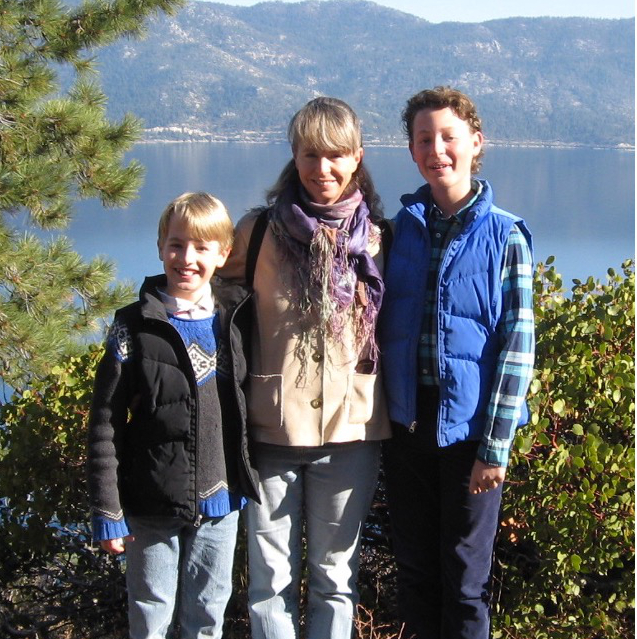
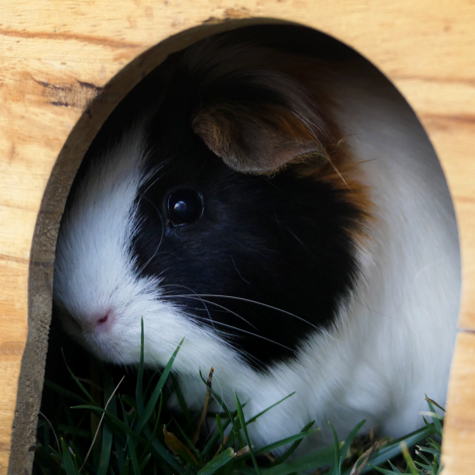
What would students be surprised to find out about you?
I was born and raised in the desert in New Mexico, one of the poorest states in our country. I love deserts and I studied Arabic for many years to be able to work in the deserts in the Middle East with nomads. I have worked with Afghan nomad refugees on the Afghan border with Pakistan and with nomads in southern Morocco who used to migrate in caravans across the Sahara desert. I have seen grinding poverty and how that impacts health and disease among humans and animals. These experiences motivate my teaching on a lot of levels and help to explain my passion for One Health and Global Planetary Health. Geography reveals how intricately interconnected the world and all its creatures (including humans) really are—a perspective we need for a successful One Health approach!
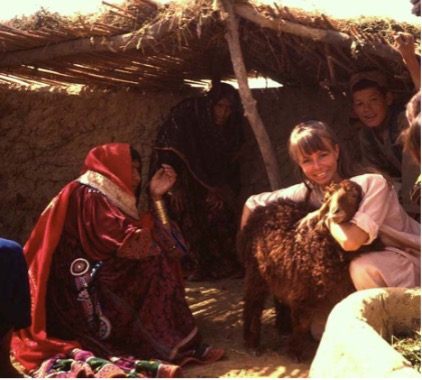
What is the best piece of advice anyone has given you?
There have been two pieces of advice that have helped me a lot. First, my wise grandfather used to say: If you just do a good job taking care of the small things, the big things will take care of themselves. Second, if you can do good in the world (or at least do no harm), follow your bliss and do what makes you happy.
